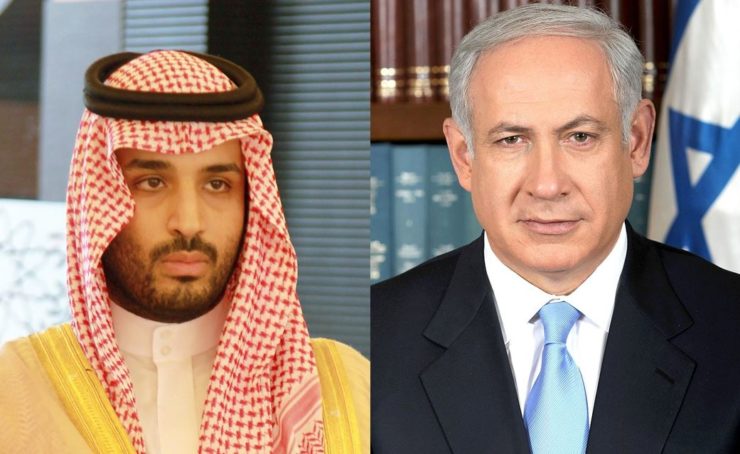
In a recent statement, the US Secretary of State Antony Blinken held that “good progress” has been made in negotiations on normalizing relations between the Kingdom of Saudi Arabia and Israel. The statement was issued during Blinken’s visit to Cairo, which was followed by his to the Kingdom. He further stated, “I believe we can reach an agreement, which would present a historic opportunity for two nations, but also for the region as a whole.” Although he did not provide any timeframe, a major breakthrough is expected before the 2024 US presidential elections.
Rumors of normalization of relations between Israel and Saudi Arabia have been circulating since the Abraham Accords. However, the Kingdom refrained from making any hasty move due to intense pressure from the Muslims around the world. Saudi Arabia is often blamed for having covert relations with Israel. In 2017, Simon Henderson, director of the Gulf and energy policy program at the Washington Institute for Near East Policy, termed the secret relations between the two sides as an open secret.
US-backed negotiations were already underway between the Saudi government and Israel, but the latter’s genocide in Gaza impinged this process. Iran’s burgeoning influence in the Middle Eastern region is the key driver behind the cooperation between Israel and the Gulf States. Both sides see Iran as their common enemy. Iran-backed proxies have equally infringed on the interests of Israel and Saudi Arabia in the Middle East. The power struggle between Iran and Saudi Arabia has destroyed the region. The rivalry between the two sides has wreaked havoc in Libya, Yemen, Syria, and Iraq. Both sides have exploited sectarian fault lines to gain leverage in the region. Saudi Arabia has been fighting with the Iran-backed Houthis, a Shia militant group in Yemen, for years.
On the other hand, Israel also deems Iran the biggest regional threat to its sovereignty. Iran has been a prime supporter of Hamas and Hezbollah. Both these organizations have been fighting Israeli forces for years. Iran’s quest for nuclear power has further jeopardized the interests of Israel and the Gulf states. Saudi Arabia seeks a defense pact with the United States, which would include assistance in the development of its own nuclear program, along with a decrease in arms sales restrictions on the Kingdom by the United States. Iran’s expanding influence in the region and among the Muslim world due to its backing of Hamas in the current Israel-Hamas has increased the threats for the Kingdom, causing a palpable sense of urgency emanating from the latter’s actions. Saudi Arabia lose response to the massacre of innocent civilians in Gaza by the Israeli Defense Forces (IDF) demonstrates the willingness of the Saudi authorities to establish ties with Israel and their preparedness to abandon the demand for the establishment of an independent Palestinian state.
The Biden administration, on its part, is also in a hurry to broker a normalization agreement with Saudi Arabia before the 2024 presidential elections as a capstone to Former President Trump’s Abraham Accords. Biden’s support of Israel’s genocide in Gaza despite massive protests in the country has negatively affected his political stature. Around 57 percent of Americans have expressed dissatisfaction with Biden’s handling of the Israel-Hamas war. People within the Democratic benches disapprove of Biden’s Israel policy. In recent primaries, 40000 Democrat voters have opted to remain uncommitted in protest to the failure of the Biden administration to establish peace in Gaza. Americans are also critical of Biden’s management of the Russia-Ukraine conflict. A majority of the American population sees foreign interventions against their national interests. Amidst all this, a normalization agreement between Saudi Arabia and Israel can help Biden regain his popularity to some extent.
However, Israel’s recent war crimes in Gaza have made it an uphill task. According to the annual Arab Public Opinion survey, the majority of Arab nationals are against the idea of normalization of ties between Saudi Arabia and Israel, with 89 percent outrightly hostile to the idea. A peace deal between the two sides without resolving the Palestine issue might not impact the Saudi government domestically due to its dictatorial policies. However, it would prove detrimental at the regional and global levels.
Saudi Prince Muhammad Bin Salman is already criticized by Muslims around the world due to his liberal policies. A normalization deal will serve many economic interests of the Kingdom. It will also help in the technological advancement of the country. However, any sort of compromise on the Palestine issue by the Saudi government will further increase the Iranian influence in the region by strengthening Iran-backed proxies. Moreover, tensions at Saudi Arabia’s border with Yemen could also increase. Proxy groups like the Houthis and Hezbollah can threaten Saudi interests in the Middle East. On the other hand, the plight of the Palestinian people will further be exacerbated as a result of any such deal. The IDF will unleash more intense brutal attacks on the Palestinian people after the normalization of ties with Saudi Arabia.
Abbas Hashemite – is a political observer and research analyst for regional and global geopolitical issues. He is currently working as an independent researcher and journalist, exclusively for “New Eastern Outlook”.
